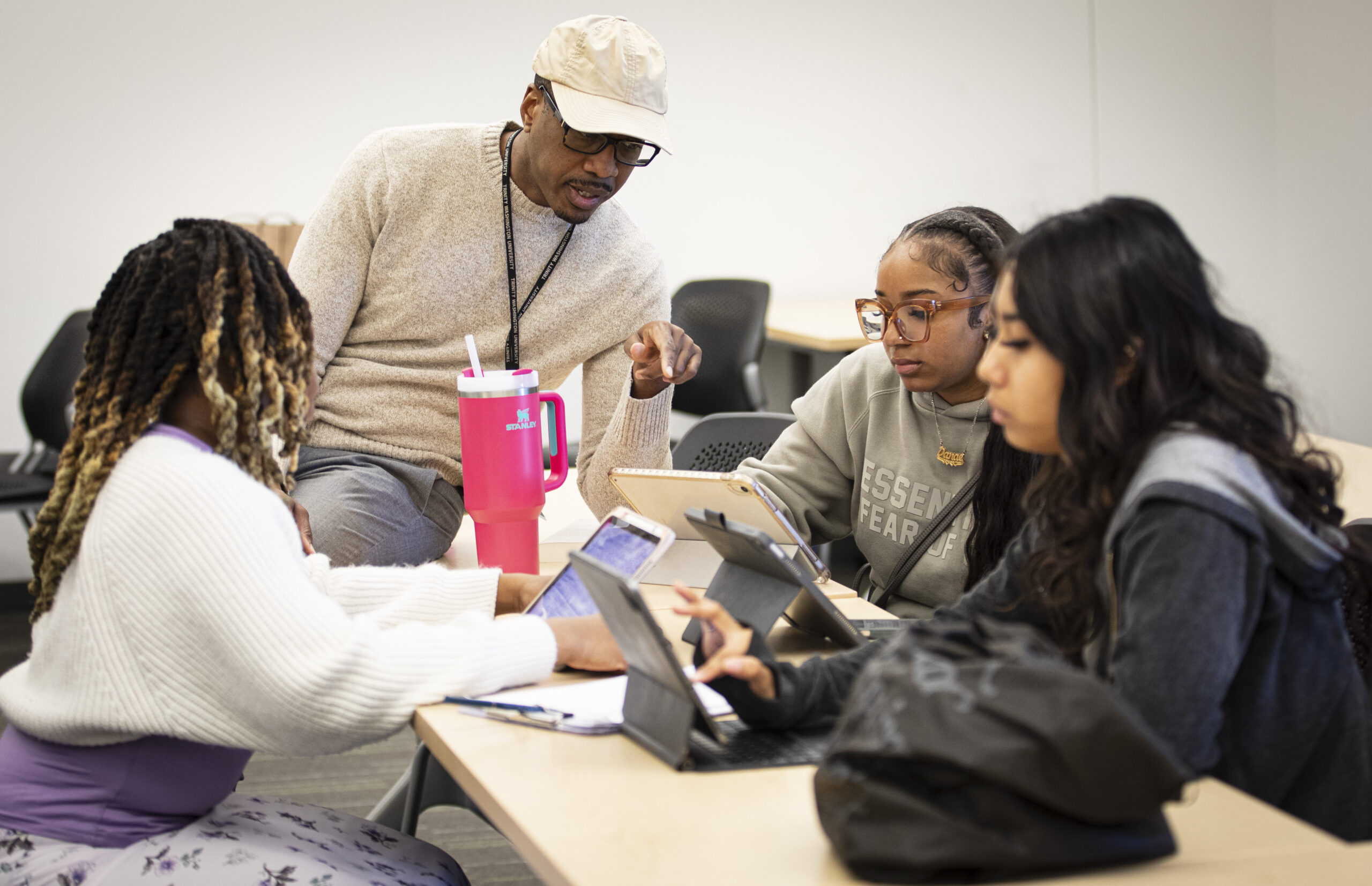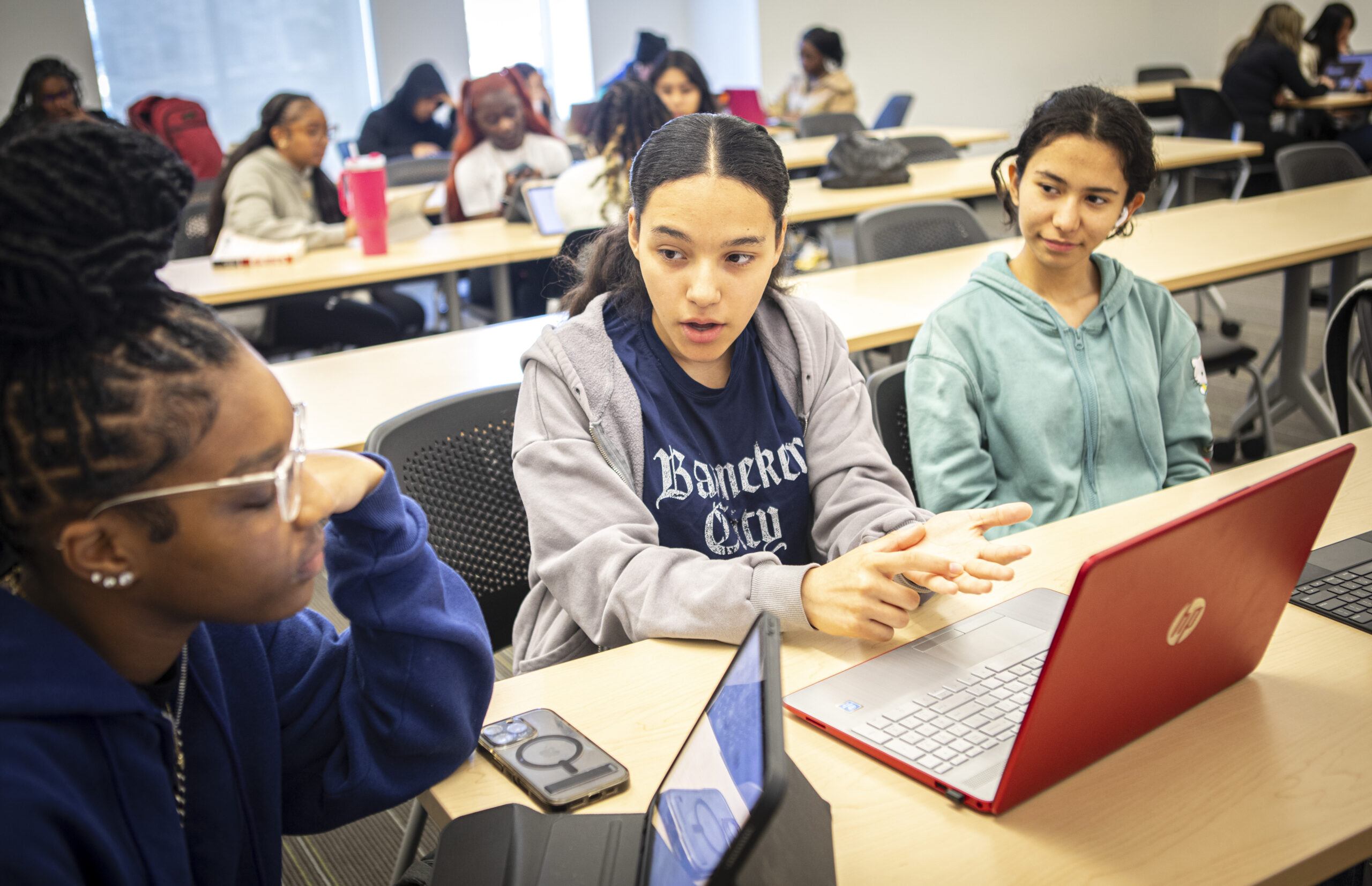
By Saron Gebereegziabhier
Trinity Times Correspondent
Trinity Washington University Early College Academy student Jaysi Encarnacion-Ramirez has big concerns about the current state of U.S. politics — and she wishes more of her teenage peers in Washington were as engaged in civic affairs.
Encarnacion-Ramirez knows she’s not the typical high school student. As part of the Early College Academy — better known as the ECA — she is enrolled in a dual-degree program where high school students earn college credit. Those who complete the program graduate with both a high school diploma and an associate degree from Trinity.
But she’s frustrated that many of her peers outside the university community appear to have short attention spans and hold the belief that one vote — or one voice — isn’t enough to make a meaningful impact.
Fellow ECA student Maya Sims agrees and believes that young people need to be engaged now if they are going to maintain political enthusiasm by the time they’re eligible to vote in the 2026 and 2028 elections.
It’s a theory echoed by Harvard University’s Graduate School of Education, which recently released a road map for middle and high school leaders to help students build civic identity and develop civic skills across grade levels and subject areas.
This call to action followed Harvard’s analysis of youth voter turnout. The university found that the 18-to-29 age group’s participation dropped significantly in the 2024 presidential election and showed a decreased connection to the Democratic Party compared with the 2020 and 2022 elections.
Sims, Encarnacion-Ramirez and fellow ECA students Kevin Gomez and Chryseis Beckett shared their thoughts with Trinity Times on the political engagement of their generation — and how much they are learning this semester in Political Science 101: Politics, Power & You: Democracy at the Crossroads, taught by history professor Joshua Wright.

“If we were just allowed to share our views without being overlooked, I’m sure many more of us would step up and participate,” Sims said.
More than simply meeting academic requirements, the political science course and the ECA program are challenging students to engage with real-world issues and think critically about the role of politics in society.
The class introduces students to key concepts of government and political theory, while encouraging them to connect those ideas with current events and everyday issues. By analyzing local electoral trends, international conflicts and economic policies, students are prompted to consider how politics directly impacts their lives.
This is the first time Wright has taught a course specifically for ECA students, and he said he was impressed by their political awareness from the start.
“A lot of them came aware of a number of issues,” Wright said. “They see the purpose of voting, see the purpose of civic engagement.”
He noted this contrasts with his previous experiences teaching older students — many in their mid-20s — who often lacked a foundational understanding of civics upon entering college.
“In political science, we discuss a lot of important topics that show how politics affect our daily lives,” Gomez said, underscoring the transformative power of the course discussions.
Though Wright acknowledged that the ECA cohort is not representative of typical high school students, he said they exemplify how teenagers can become engaged and enthusiastic civic participants when introduced to these topics early on.

Beckett said she hopes middle and high school educators begin moving beyond textbooks and instead integrate tangible, real-life issues into their lessons — fostering a more connected and responsive form of education.
This dynamic interplay between classroom theory and real-world experience is exactly what sets the ECA program apart, Beckett said, and she believes this model should be adopted more widely in public schools.
All four ECA students interviewed agreed: inspiring today’s teenagers to care about their communities and their country will cultivate a generation ready to rethink civic participation and contribute meaningfully — a transformation that could redefine political engagement for years to come.